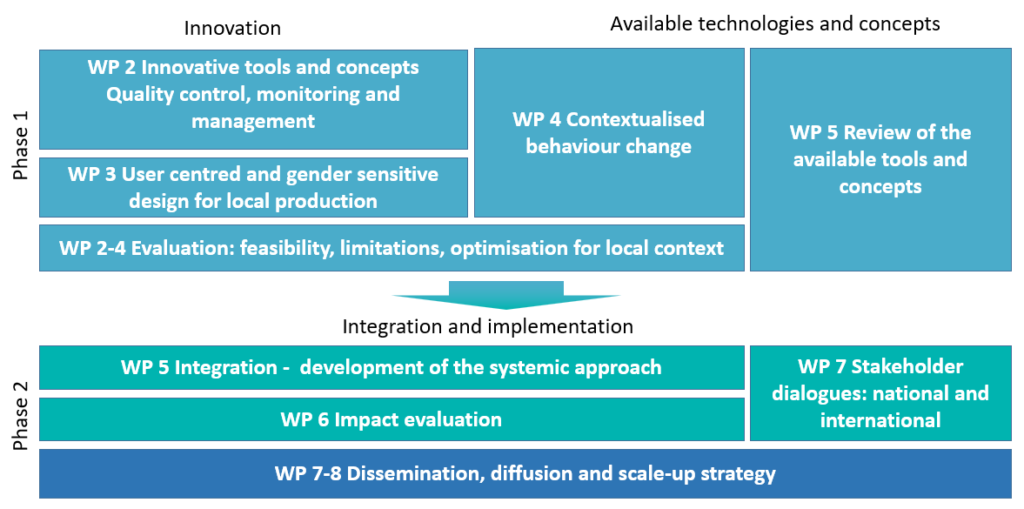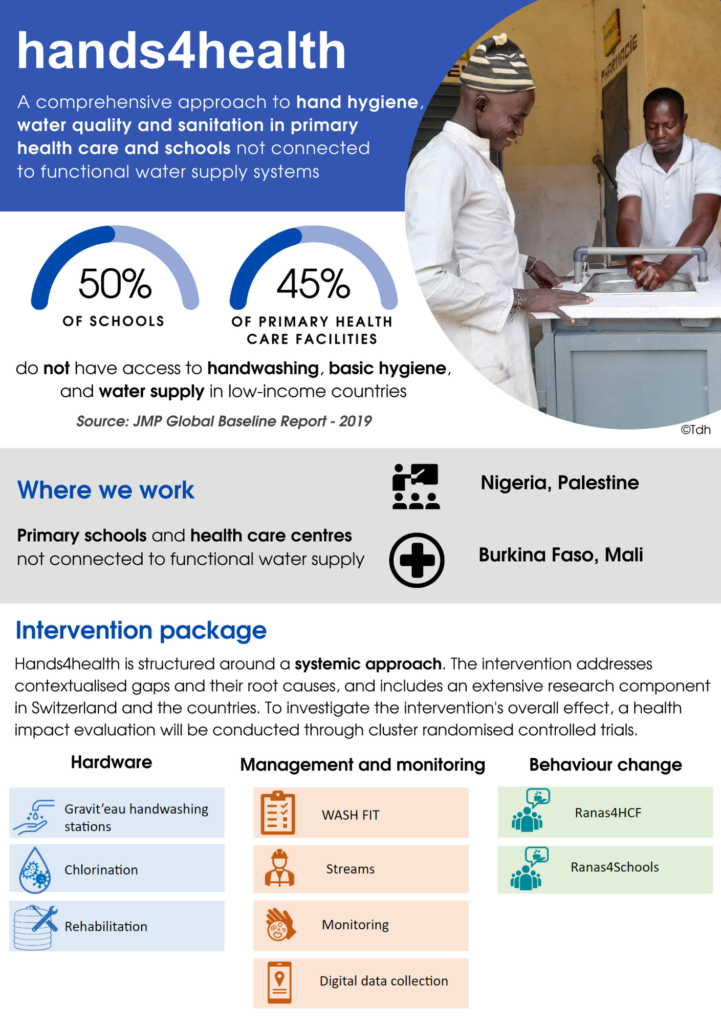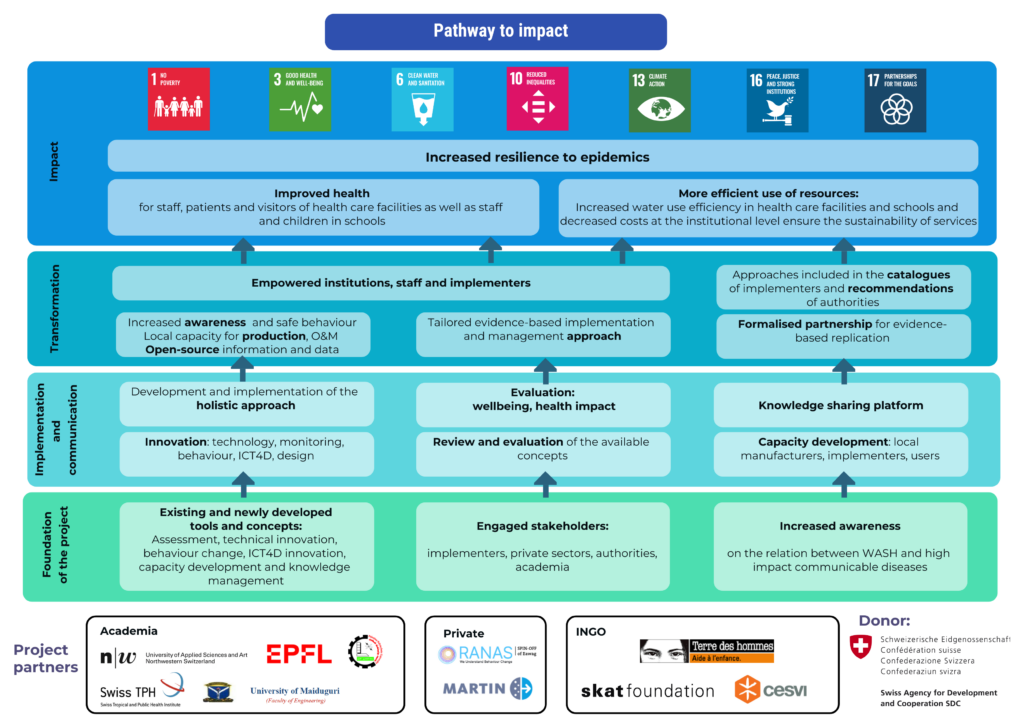What We Do
Project overview
This project focuses on the development and implementation of a holistic approach to hand hygiene, water quality and sanitation in primary health care facilities and schools not connected to a functional water supply system.
It is built around ongoing Swiss-based WASH initiatives, methods and innovations for schools and primary health care facilities (HCFs). These have been successfully piloted and evaluated in the development or humanitarian emergency context by project partners within the last 2-5 years.
Our goal is to integrate novel and existing low-cost and resource-efficient WASH interventions from the fields of engineering, behaviour and health psychology, gender and inclusion, design, health, information and communication technologies, and knowledge management into a practical user-friendly approach.
The approach addresses all stages of implementation, from the assessment of the situation to novel low-cost interventions for infrastructure improvement, behaviour change and facility management. It also incorporates data management and monitoring to enable a rigorous assessment of the impacts on health determinants and outcomes.
Work packages
This project comprises 8 work packages (WPs), which are distributed over 2 project phases. The overall project duration is 4 years, from 2021 to 2024.
- WP 1 – Coordination and internal learning (lead: FHNW, co-lead: Tdh)
- WP 2 – Technical innovations (lead: EPFL – Laboratory for Water Quality and Treatment, co-lead: Martin Systems)
- WP 3 – User-centered design approach (lead: Cesvi, co-lead Tdh)
- WP 4 – Behaviour change strategy (lead: RANAS)
- WP 5 – Holistic approach to implementation (lead: FHNW)
- WP 6 – Impact evaluation (lead: Swiss TPH, co-lead: PPU)
- WP 7 – Open-source data sharing platform and capacity development (lead: Skat Foundation, co-lead: FHNW)
- WP 8 – Adoption at scale (lead: Tdh)

Phase 1 of the project is country specific and includes a number of feedback loops. It focuses on the development and evaluation of the specific tools and concepts for infrastructure improvement and management, and behaviour change. The evidence generated on user acceptance, ease of use, logistical considerations, general uptake, and health impact will transfer into further optimisation.
At the end of phase 1, the concepts to be included into WP 5 will be selected. Work packages 5 and 8 focus on the development of the holistic approach and its scale up at the local and international level during phase 2 of the project. They bring together the contextual evidence from the different countries. An analytic, comparative synthesis will be launched and undertaken under WP 8, to establish commonalities and differences for different contexts. The implementation of WP 5 includes additional feedback loops based on the elaboration of the health determinants and outcomes (diseases and well-being indicators) within WP 6.
The impact evaluation (WP 6) will lead to the final concept, which will prioritise well accepted interventions with measureable health impact implemented in a logical combination. Work packages 6 and 7 will be conducted during the entire project duration, focusing on single innovations in the local contexts of phase 1 and combined with the holistic approach of phase 2, oriented to scale up at the local and international level.
Building blocks
The hands4health project is rooted on 4 interrelated and interconnected building blocks: (i) Systemic approach, (ii) Impact evaluation, (iii) Behaviour change and (iv) Open-source knowledge platform. These four blocks and their related work packages provide the basis for the development of a comprehensive approach to hand hygiene, water quality and sanitation in primary HCFs and schools not connected to functional water supply systems.

Systemic Approach

Impact Evaluation

Behaviour Change


